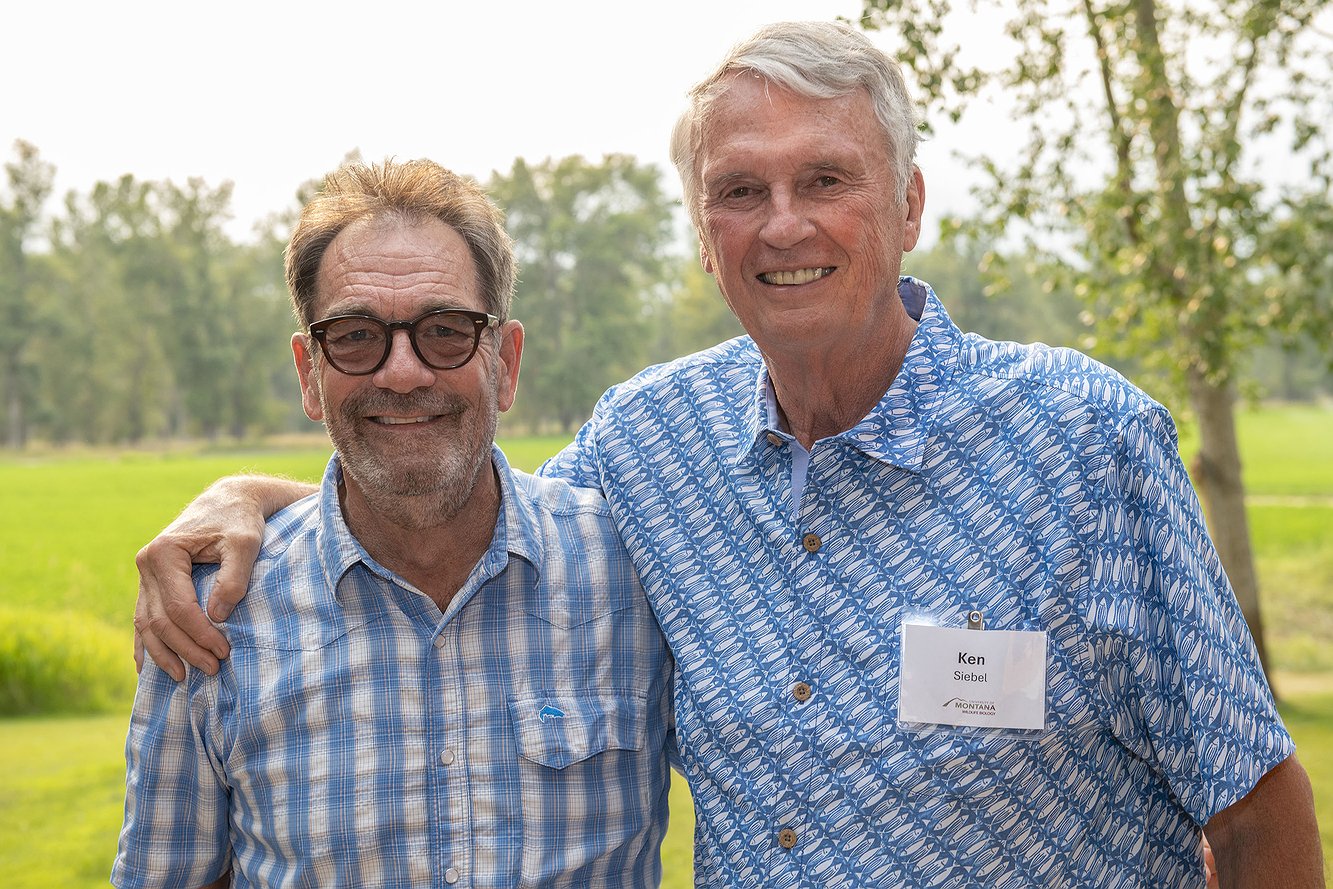MISSOULA – The University of Montana announces the completion of a successful $5 million fundraising campaign to endow a chair in fisheries science for its renowned wildlife biology program.
The Siebel-Lewis Endowed Chair in Fisheries Science will strengthen and expand the aquatic focus of the wildlife biology program, furthering its mission to provide excellence in education and advance science-based management of fishing in Montana, the West and beyond.
More than 50 donors came together to create the new chair during a 26-month campaign led by the University of Montana Foundation. Their gifts created the $5 million endowment that will support, in perpetuity, the research and work of an expert to be recruited by the university to lead the fisheries effort. Notable contributors whose generous support made the donation possible include investment manager Ken Siebel, musician Huey Lewis, the late Gordon Moore, the Tykeson Family Foundation and the Trailsend Foundation.
The announcement comes as land managers face challenging resource management decisions for Montana’s aquatic ecosystems. Declines in native trout populations in the state’s cold-water rivers and streams have alarmed biologists, fishermen and anglers.
The Siebel-Lewis Chair in Fisheries Science will enhance the research output of the wildlife biology program, strengthening its commitment to unbiased, data-driven solutions for ensuring healthy waterways and preserving recreational opportunities throughout the West. The program’s work will have a profound environmental and economic impact throughout the region, university officials said.
“Our job is certainly to address current needs, but we’re always looking to manage tomorrow’s needs,” said Chad Bishop, director of the wildlife biology program. “The addition of this chair in fisheries will increase our capacity in undergraduate and graduate education while helping us better meet the real research needs to conserve native fisheries and support recreational fisheries in Western Montana.”
Chair Siebel-Lewis raises the wildlife biology program’s goal to train leading fish biologists through classroom instruction and immersive, hands-on field work with real-world applications in fisheries conservation and management.
It gives the program the opportunity to build on its already cutting-edge fisheries research, including work done by Associate Professor Andrew Whiteley. Whiteley won an $800,000 CAREER grant from the National Science Foundation in 2017 for his work on the effectiveness of gene rescue in trout populations.
“An endowed chair in fisheries gives the University of Montana an even greater ability to advance our well-established track record of outstanding research, education and conservation,” said University of Montana President Seth Bodnar. “[The university] has been a leader in the field of wildlife biology for decades, and this addition only adds to that reputation as well as the university’s ability to attract world-renowned faculty and top undergraduate and graduate students.”
The university has been at the forefront of fisheries scholarship since the 1970s, when Montana Regents University professor emeritus Fred Allendorf and former biology professor Robb Leary founded the Montana State Conservation Genetics Laboratory, where Whiteley is now principal investigator. The lab formed a partnership with Montana Fish, Wildlife and Parks that resulted in the creation of one of the world’s first comprehensive databases of native trout.
“We are pleased to help the University of Montana work to conserve our state’s fish, rivers and watersheds, which annually attract fly-fishing enthusiasts from around the world and provide an important economic boost to Montana,” said donor Ken Siebel. “We believe that healthy rivers and streams are not only intrinsically valuable, but also benefit all of our citizens.”
The introduction of the new chair comes amid the University of Montana Foundation and Franke College’s “Treasure Montana: Cultivating Our Tomorrow” fundraising campaign. The campaign aims to inspire $20 million in private support to build a new state-of-the-art, 60,000-square-foot center for environmental research and conservation on campus. The effort will match $25 million committed to the project by the Montana Legislature in 2021.
Wildlife Biology is an interdisciplinary program between the WA Franke College of Forestry and Conservation, the Division of Biological Sciences within the College of Humanities and Sciences, and the Montana Wildlife Cooperative Research Unit. One equipped fishing chair brings the program’s total number of equipped chairs to four.
The recruitment of the fisheries expert, who will hold the Siebel-Lewis Chair in Fisheries Science and lead the University of Montana’s fisheries work, will begin with the creation of an interdisciplinary hiring committee to conduct a nationwide search for candidates, with the hope of filling the position by the beginning of the 2025-26 academic year.
 The Siebel-Lewis Endowed Chair in Fisheries Science honors donors Huey Lewis, left, and Ken Siebel, who joined more than 50 donors to create the endowed position that will strengthen and expand the aquatic focus of the biology program of UM wildlife. (Courtesy of University of Montana)
The Siebel-Lewis Endowed Chair in Fisheries Science honors donors Huey Lewis, left, and Ken Siebel, who joined more than 50 donors to create the endowed position that will strengthen and expand the aquatic focus of the biology program of UM wildlife. (Courtesy of University of Montana)